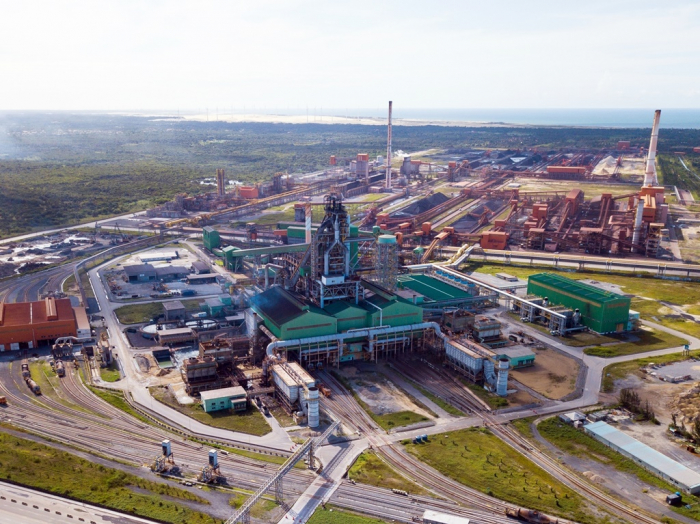
Brazil CSP Dongkuk Steel Mill Co., South Korea’s third-largest steelmaker, is expected to continue to benefit further from the strong earnings of its Brazilian unit, Companhia Siderurgica do Pecem steel mill, commonly known as CSP.CSP’s profit in 2022 was forecast to exceed some 700 billion won ($567.3 million) in operating profit last year as Russia’s invasion of Ukraine ramped up prices of steel slabs, the company’s key products.That is likely to help Dongkuk, which has a 30% stake in CSP, accomplish a target of record earnings this year, analysts said.Dongkuk, the world’s leading manufacturer of color-coated steel, was estimated to log an operating profit of 160 billion won in the first quarter on a consolidated basis, up 46% from a year earlier, according to analysts.“The earnings are likely to exceed an earlier forecast thanks to strong global steel prices,” said HI Investment & Securities. “It will also continue to see better-than-expected trends in the second quarter on CSP’s healthy performance.”THE UGLY DUCKLINGThe South Korean steelmaker last year logged an operating profit of 803 billion won last year, the largest since 2008 when the profit hit a record high of 856.2 billion won, on higher product prices amid rising costs of raw materials such as metal scrap, as well as strong sales of color-coated steel. Its net profit jumped by more than eight times to 558.5 billion won in 2021 from 69.4 billion won in the prior year.Dongkuk reported a total of 386.1 billion won in a net loss in 2018 and 2019 as CSP had been in the red with an accumulated loss of 2.2 trillion won from 2017 to 2020.CSP is 50% owned by Brazil’s mining giant Vale S.A. Korea’s top steelmaker POSCO holds the remaining 20% stake in CSP. But Dongkuk steered the establishment of CSP, leading the investment and payment guarantee.The construction of the steel mill was completed in 2016 with an investment of $5.4 billion including $2.4 billion in capital and $3 billion in loans.CSP was regarded as a future growth engine for Dongkuk in June 2016 when the Brazilian unit started producing steel slabs. But it suffered losses from 2017 to 2020 on poor performance and the rapid depreciation of the Brazilian real currency against the dollar after reporting a net profit of 90.5 billion won in the first year of operations. Steel slab produced at CSP TURNAROUNDCSP, located in the Brazilian state of Ceara, reversed the trend last year thanks to the strong prices of slabs. Its export price more than doubled to $867 per ton on a Free On Board basis in April 2021 from $334 a year earlier when the COVID-19 hit the world. The price had eased in the second half of last year, but resumed its upside after the war in Ukraine as Russia, a key slab supplier, virtually suspended its exports. It soared 72.8% to up to $1,068 from $618 in January before Russia invaded the neighboring country.The Brazilian steel mill has been able to maintain its runs at above 90% despite the COVID-19 since it was designated as an essential infrastructure by the state government.The real has been strengthening against the dollar, helping CSP improve its earnings. About 80% of CSP’s net loss stemmed from valuation losses of foreign currency debts. A weaker real usually increases CSP’s losses.The real has appreciated 18.5% versus the greenback so far this year, according to Reuters’ data, although the Brazilian currency is not immune from the US Federal Reserve’s tightening move that could spur capital outflows from emerging countries, analysts said.“We will keep focusing on making profits through expanding the capacity of products such as slabs regardless of the volatility of the real currency,” said a Dongkuk source in Seoul.By Kyung-Min Kangkkm1026@hankyung.comJongwoo Cheon edited this article.
Most Read